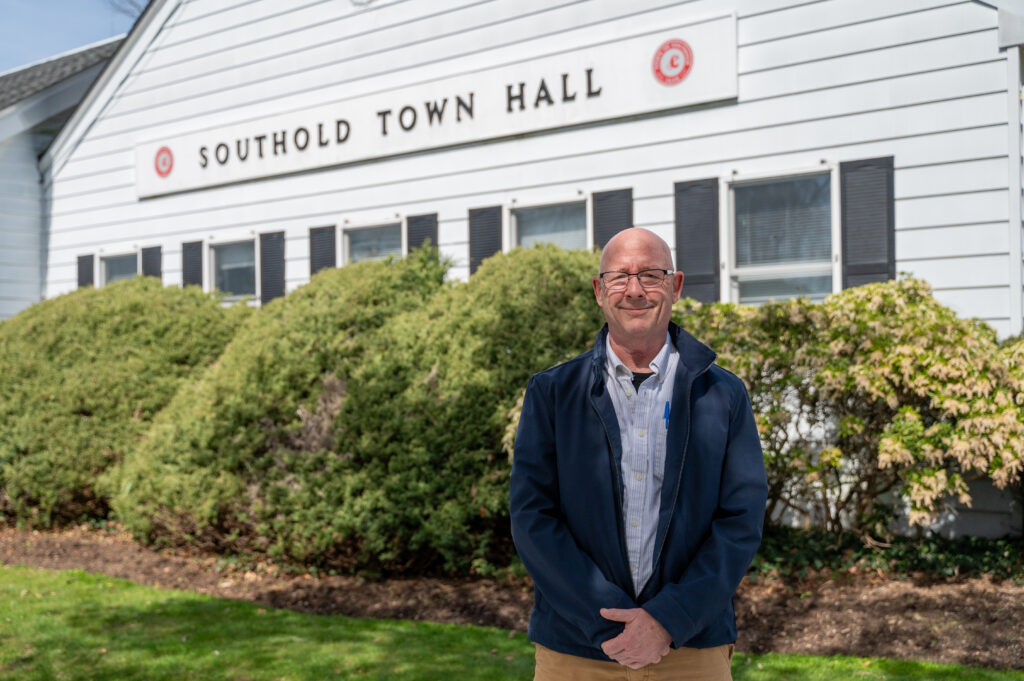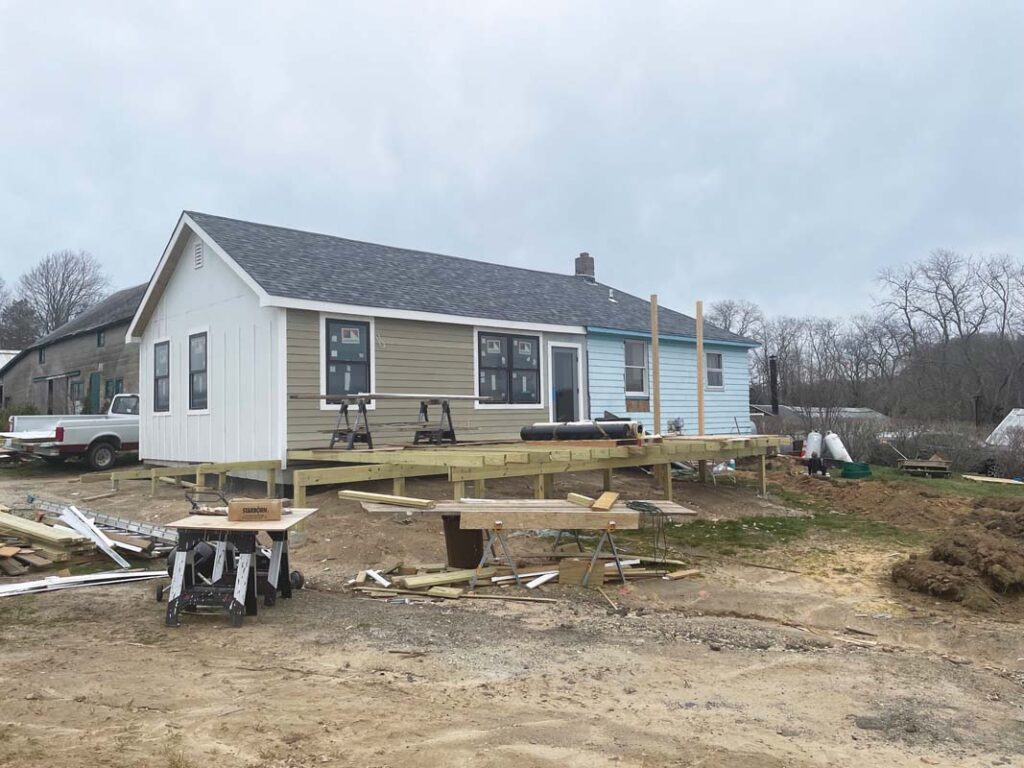Town officials, civic leaders sound the alarm on affordable housing

The lack of affordable and workforce housing in Southold Town, for years a critical issue facing local officials, has grown far worse since the real estate boom of the past year.
That was the unmistakable message at Wednesday night’s affordable housing discussion on Zoom sponsored by North Fork civic associations. More than 60 people listened in, spoke or passed along electronic questions to the main speakers.
“The issue of affordable housing impacts the entire community,” said Pat Lutsky, co-chair of the town’s Affordable Housing Commission, who participated in the panel discussion.
She said people the town desperately needs to retain — from firefighters and first responders, to health care workers and employees of small businesses — are the most impacted by sky-high housing costs.
“We are beyond crisis,” she said. Referring to the explosion in housing prices during the year of the pandemic as hundreds moved to the North Fork from New York City, she said, “This is a crisis on steroids the way the real estate market has changed.”
The evening’s main host was Anne Smith, president of the Mattituck Laurel Civic Association. She introduced, among others, Southold Town Supervisor Scott Russell, Ms. Lutsky, and Denis Noncarrow, the town’s government liason officer.
Mr. Russell made a number of points during the meeting about the town’s role in encouraging affordable housing. For starters, he said affordable housing “is one of our most critical issues without a doubt.”
He said the sharp rise in real estate prices over the past year has all but eliminated the possibility of affordable houses people could buy and moved the issue to the creation of affordable rental units instead.
Mr. Noncarrow, who has focused on this issue as part of his Town Hall duties, said, “We are watching members of our North Fork community being forced to leave because of housing costs. We are in a housing crisis. A major percentage of folks in our town are just trying to get by.”
In recent years the town has seen some success with affordable housing, with the most recent the opening of the 50-unit Vineyard View apartment rentals on Route 48 near Greenport. Last September, the town held its first affordable housing lottery in 15 years for the complex, which was built by a private developer.
The lottery offered 14 one-bedroom, 22 two-bedroom and 14 three-bedroom rentals. To secure a unit, an applicant could not make more than 60% of the area’s median income for Suffolk County. At the lowest end, a one-bedroom unit rents for $1,056 per month, with three-bedroom units capped at $1,784 a month.
There have been setbacks as well. Recently, the Town Board voted against a change of zone application that would have created 16 affordable apartments on the former Knights of Columbus property on Depot Lane in Cutchogue. Neighbors living near the site waged a petition drive against it.
Mr. Russell, who voted no on the proposal, said he did so because construction of the units would have changed the character of Depot Lane. During the Thursday evening Zoom meeting he said the proposed units, if built, would have been too close to the 124 condominium units at Harvest Pointe just to the west of Depot Lane. Those units sit on what was once 46 acres of rich farmland.
During the Zoom, Mr. Noncarrow spoke about the 400 or so names on the town’s affording housing registry and said calls to Town Hall from people who need help fall along the lines of “I need an apartment now.”
He pointed out that median income in Nassau and Suffolk counties for a family of four is too low for the family to qualify for a mortgage for a house in Southold, where average prices of two-and- three-bedroom houses have risen well past $750,000.
Mr. Russell explained the town’s role — not as a provider of affordable land to build on, but rather in the area of leveraging zoning to encourage construction. Private developers, he said, are key players in the process, with assistance from the town to make the process work more smoothly, and also with density and sewage and water issues that are governed by the county Department of Health.
One theme sounded repeatedly during the meeting was the issue of neighbors who are for the idea of affordable housing — but not near their homes. Ms. Lutsky spoke to that issue — “We are certainly aware of the NIMBY syndrome everywhere” -— as did Mr. Russell and Mr. Noncarrow.
Mr. Russell said the 400 names on the town’s affordable housing registry “are your neighbors, the firemen who come to rescue you and the nurse who treats you…. Everyone says they support affordable housing – but they don’t want it here or there. If you want affordable housing, you have to accept it.”
This theme was sounded forcefully by developer Paul Pawlowski of Mattituck, who is currently building units at 123 Sterling Avenue in Greenport.
He outlined the harsh economic realities of construction, reinforcing that density is critical for the developer to be able to recoup investment costs. He said land costs have risen to such a level that building affordable units has become more and more difficult.
“Where in the world can you build four units at a cost of $1 million and make money?” he asked. “The only people who come out to speak at meetings are the people who don’t want it.”
He said for any affordable housing project to succeed, the players have to come up with a plan of attack to overcome people who favor the idea, but not in their backyards.
He called for each hamlet in the town to have a quota for affordable units, so as to spread them townwide. But he strongly reiterated one theme: that developers “have to have the confidence that the naysayers won’t shut it down. They are the stumbling blocks … I’m more discouraged by the process and the naysayers.”
Legis. Al Krupski (D-Cutchogue) sounded the idea that the people who need housing they can afford are in every way your neighbors. He pointed out fire departments are always searching for new members who can afford to live and work in the town.
“We need people who can live here and join our departments,” he said.








